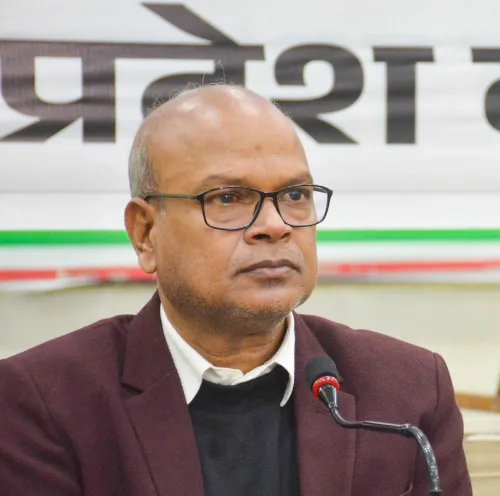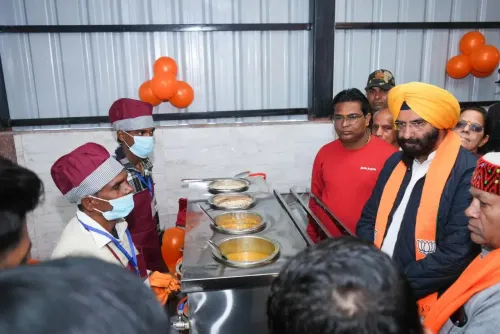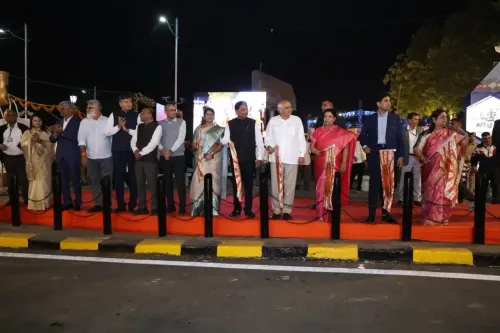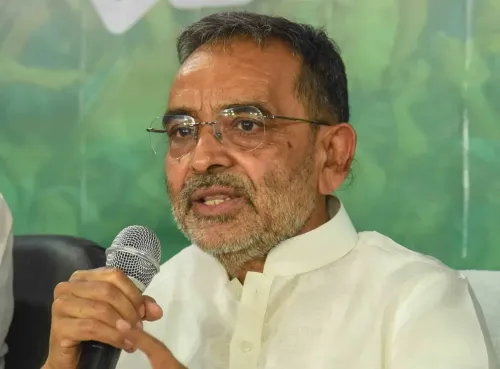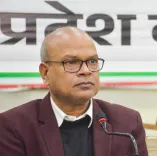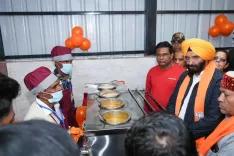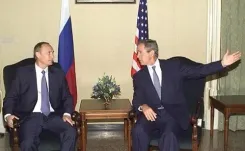Is Kolkata's Recent Crime Incident a Wake-Up Call for Law and Order in an Election Year?
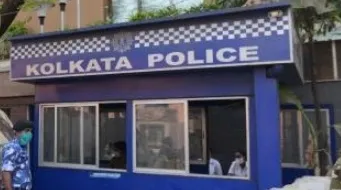
Synopsis
Key Takeaways
- Law and order issues are escalating in West Bengal.
- Political polarization contributes to unrest.
- Election violence has historical precedence in the state.
- Community safety is a pressing concern.
- Calls for accountability are increasing.
New Delhi, Sep 16 (NationPress) The alarming event involving a group of armed individuals invading a bustling market and firing shots into the air in the southeastern outskirts of Kolkata has reignited discussions regarding law-and-order challenges in the upcoming elections for West Bengal.
In a bold display of disregard for law enforcement, this same group reportedly returned the following day in the early morning hours to throw bombs.
This incident is believed to stem from a turf conflict between rival factions, yet the brazen show of strength has unsettled not just the local community but also many residents in the state capital.
While it could easily be dismissed as one of the many sporadic crime stories featured in daily newspapers, in West Bengal, the state of law and order is perceived to be under significant strain heading into 2025, with rising communal tensions, political confrontations, and criticisms of administration particularly concentrated in border and vulnerable regions.
Key factors contributing to such incidents include communal mobilization over policy disagreements, intense political polarization, alleged failures in administration and policing, and entrenched local criminal networks that perpetuate instability.
However, opinions diverge sharply along political lines regarding the causes and accountability for these situations. Perhaps the leaders of the ruling Trinamool Congress (TMC) believe that the state, governed by a party opposing the central government, is under constant scrutiny and pressure.
But citing similar issues in other states is akin to suggesting that, in politics, two negatives can yield a positive result, much like in mathematics.
Amid political disputes, it may be challenging to justify some of the criminal cases that have emerged in the state.
Last year, the brutal incident involving the rape and murder of an intern at R.G. Kar Medical College and Hospital in August continues to haunt Kolkata. A civic volunteer was found guilty and sentenced to life imprisonment. Amid allegations of shielding the true perpetrators, the case was transferred to the CBI, which reached a similar conclusion.
In April, there were extensive protests in Murshidabad district against amendments to the Waqf Act, which escalated into violence, resulting in property damage and injuries to 15 police officers. The situation targeted a specific community, with claims of administrative leniency.
Border districts like Murshidabad, Malda, and Uttar Dinajpur have seen a continuous influx of illegal immigrants. With the Census of India pending since 2011, only estimates can be made based on existing data, leading to claims of significant demographic changes.
These districts have previously experienced clashes and incidents of crude bombs detonating during assembly by criminals.
Election-related violence has plagued the state at various levels, from Parliamentary to Assembly to Municipality and Panchayat.
Meanwhile, Central agencies are investigating multiple overlapping issues, including coordinated raids by the ED and the CBI’s inquiries into teacher recruitment.
Although the TMC dismisses these cases as “politically motivated,” past incidents have seen Central agency members investigating the Sandeshkhali event being assaulted by supporters of the alleged offenders.
Last year, this situation became a flashpoint in state politics, revealing deep-rooted problems of corruption, gender-based violence, and political impunity.
Reports of systemic rape and coercion received significant media coverage, prompting demands for thorough investigations. The ED and CISF conducted numerous raids, although initial searches yielded limited evidence.
Throughout this period, several matters from West Bengal are also under review by the Supreme Court.
State elections are on the horizon, scheduled for April-May next year.


